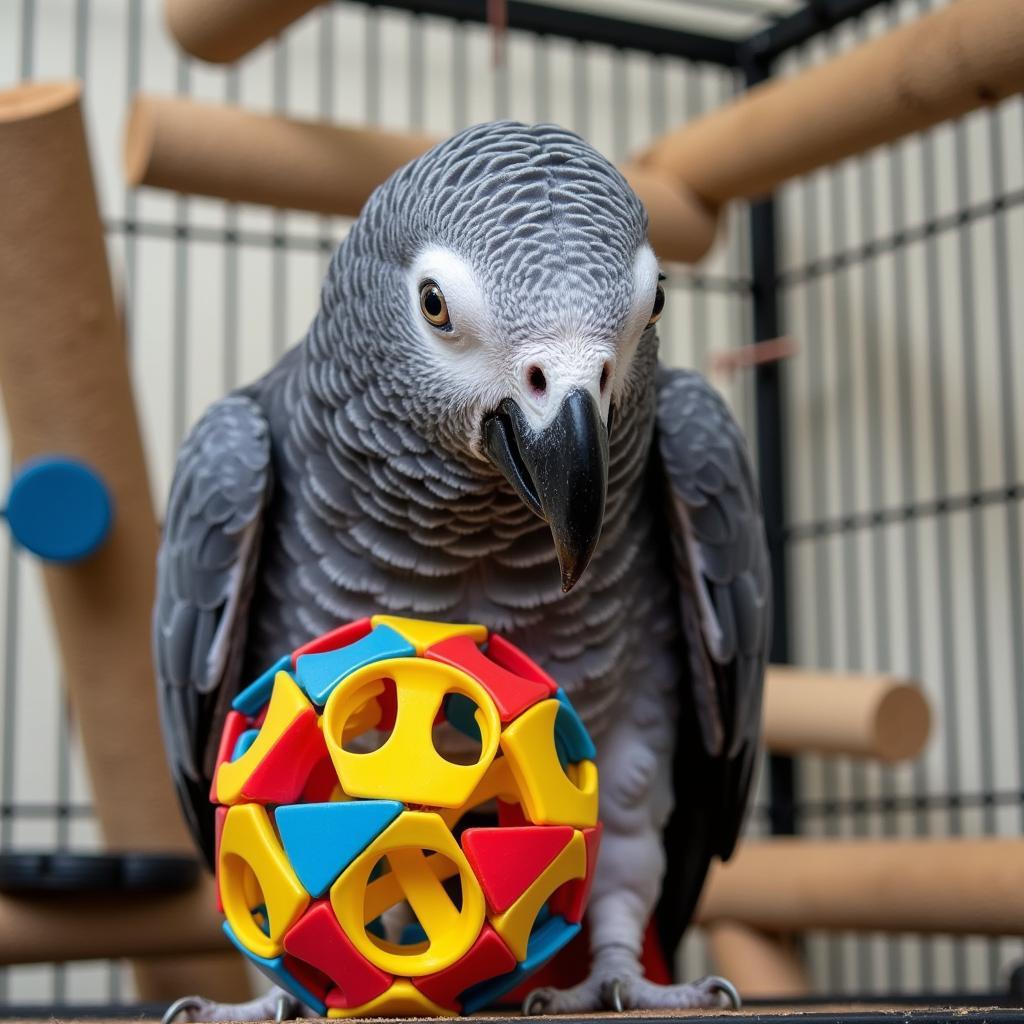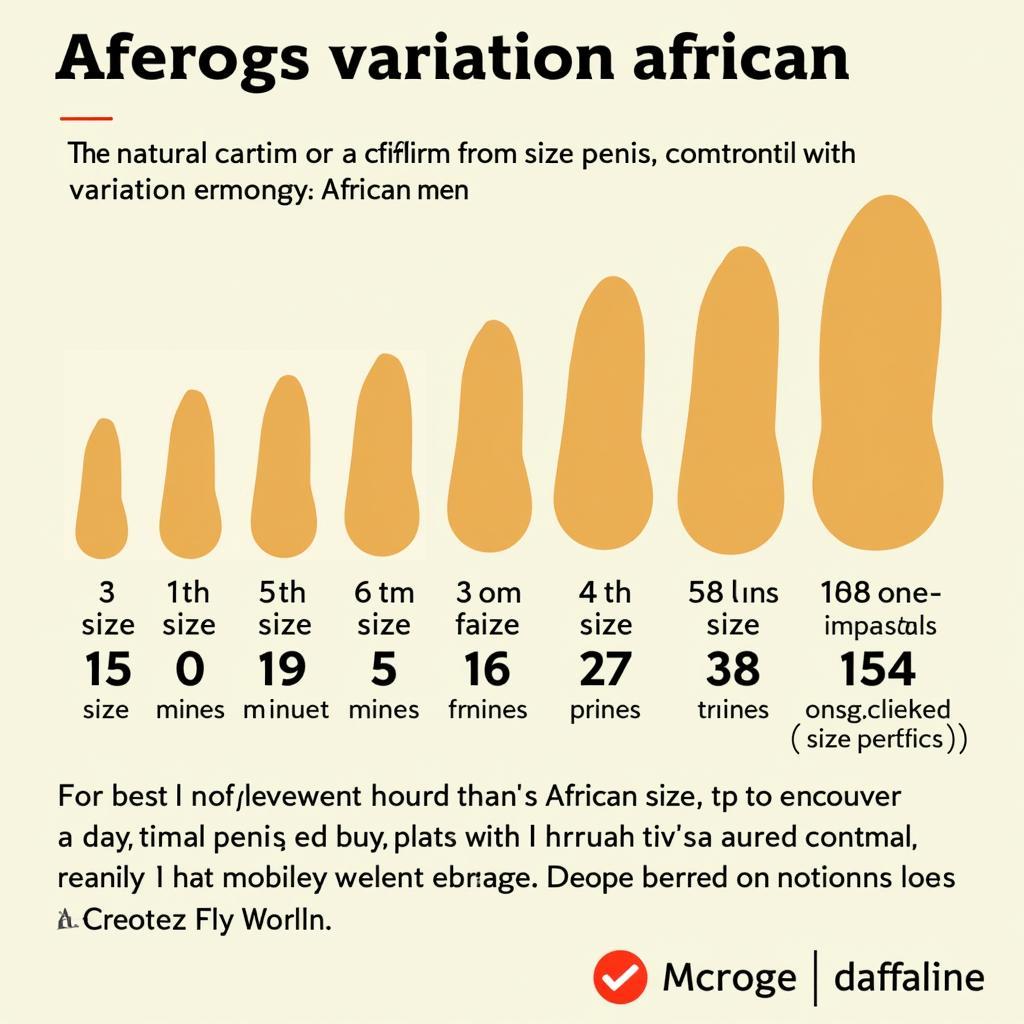The Ultimate Guide to African Gray Parrot Care
African Gray Parrot Care requires dedication and understanding. These intelligent and sensitive birds thrive on interaction and a stimulating environment. Proper care ensures a long, healthy, and happy life for your feathered companion. Learn everything you need to know to provide the best care for your African gray.
Understanding Your African Gray’s Needs
African grays aren’t just pretty faces; they’re highly intelligent creatures demanding specialized care. From their nutritional needs to their emotional well-being, providing a suitable environment is crucial for their overall health. Neglecting these aspects can lead to behavioral issues and health problems. african gray parrot care sheet explains in detail all essential aspects.
Nutritional Requirements for a Healthy African Gray
A balanced diet is crucial for your African gray’s well-being. Seeds alone are not enough; they need a variety of fresh fruits, vegetables, and a high-quality formulated parrot pellet. Consider adding african love birds food to supplement their diet. A varied diet ensures they receive all the necessary vitamins and minerals. Calcium is particularly important for bone health and can be supplemented through cuttlebone.
Creating a Stimulating Environment
African grays are highly intelligent and require mental stimulation to prevent boredom and behavioral problems. Provide a variety of toys, puzzles, and opportunities for foraging. Rotate toys regularly to keep things interesting. Interaction with their human flock is also crucial for their emotional well-being. Talk to them, play games, and involve them in your daily activities. A stimulating environment keeps them happy and engaged.
Socialization and Interaction: Key to a Happy Parrot
African grays are social creatures and thrive on interaction. Spend quality time with your parrot every day, engaging in activities like talking, playing, and training. Ignoring their social needs can lead to behavioral problems such as feather plucking and excessive screaming. Consider their emotional needs as much as their physical ones.
 African Gray Parrot Engaging with Toys
African Gray Parrot Engaging with Toys
Common Health Concerns in African Grays
While providing the right care significantly contributes to their health, some health issues are more common in African grays than in other parrot species. african grey parrot common health problems provides valuable insight into these issues. Being aware of these potential problems allows for early detection and treatment.
Feather Plucking: Causes and Solutions
Feather plucking is a common problem in African grays and can be caused by various factors, including stress, boredom, nutritional deficiencies, and medical conditions. Identifying the underlying cause is crucial for effective treatment. Consult an avian veterinarian to rule out any medical issues and develop a treatment plan.
Maintaining Hygiene: Essential for Parrot Health
Maintaining a clean environment is essential for preventing infections and diseases in your African gray. Regularly clean their cage, food and water dishes, and toys. Provide fresh water daily. A hygienic environment is vital for their overall health and well-being.
“A clean cage is a happy cage,” says Dr. Ava Johnson, a renowned avian veterinarian. “Regular cleaning prevents the build-up of bacteria and parasites, protecting your parrot from potential health risks.”
Finding Your Feathered Friend: Where to Buy an African Gray
If you’re considering bringing an African gray into your life, it’s essential to choose a reputable breeder or rescue organization. Research thoroughly before making a purchase. Ensure they’re knowledgeable about african gray parrot and prioritize the birds’ well-being. A responsible breeder will provide you with information about the bird’s history, health, and personality. Consider adopting a rescued African gray and giving a deserving bird a loving home. Find reputable sellers offering an african gray bird for sale.
Conclusion
African gray parrot care is a rewarding but demanding commitment. By understanding their unique needs, providing a stimulating environment, and addressing potential health concerns, you can ensure your African gray thrives. Remember that proper African gray parrot care is an investment in a long and fulfilling relationship with your intelligent companion.
FAQ
- What is the average lifespan of an African gray parrot?
- What are the signs of a sick African gray?
- How can I train my African gray to talk?
- What are the best toys for an African gray?
- How often should I clean my African gray’s cage?
- What should I do if my African gray starts plucking its feathers?
- What are the legal requirements for owning an African gray?
Common Scenarios and Questions
Scenario: My African gray is biting. What should I do?
Answer: Biting can be a sign of stress, fear, or hormonal changes. Consult an avian veterinarian or a parrot behaviorist to address the underlying cause.
Scenario: My African gray is not eating its pellets.
Answer: Try different brands or flavors of pellets. You can also try mixing the pellets with their favorite fruits or vegetables to encourage them to eat them.
Further Reading and Resources
Check out our articles on specific health issues and training tips for African grays. Explore our resources on parrot nutrition and enrichment.
We encourage you to reach out for personalized advice. When you need assistance, please contact us via Phone: +255768904061, Email: kaka.mag@gmail.com or visit our address at Mbarali DC Mawindi, Kangaga, Tanzania. We have a 24/7 customer care team.


